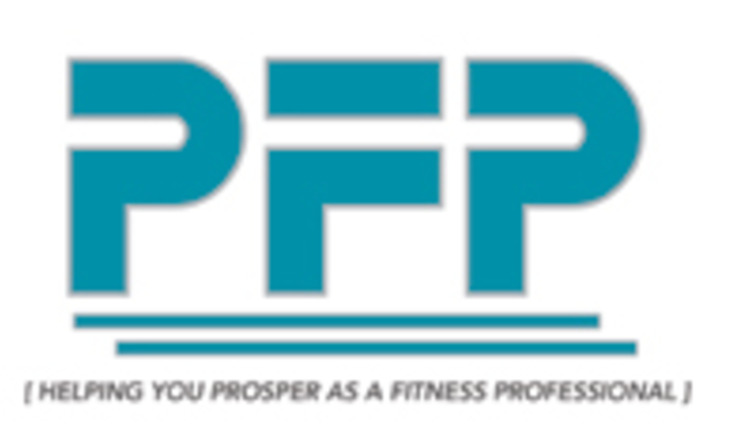In last month's article I suggested in order for global change within our industry we needed to raise ourselves to the next level, recognize where our industry is falling short and self-evaluate.
In this issue, I want to pursue the idea of change, but I want to do so clinging tightly to the economic principles that serve the industry in general, utilizing the principles that lead to foundational rules few trainers learn to abide by; rules that can make all the difference in the world in determining whether a personal training business flies or flops.
In order to re-position ourselves, in order to have others view us as professionals with a high level of expertise, we must simultaneously focus on reality and perception. We can begin to escalate the perception of an industry by displaying consistent performance at the highest levels again and again and again, even if that display is initiated only by a select few willing to self-regulate, to challenge the prevalence of mediocrity, to break the chains of the old paradigm and to pursue excellence at all costs.
The Foundational Rules
Here are a few simple and foundational governing rules I share in my seminars; rules that will maximize our human capital and find emotional, financial and personal reward; rules that help to create a firm pedestal upon which a personal training business can be built.
If You Are Going to Succeed, Make Certain Your Financial Pumps Exceed Your Financial Drains
This seems so simplistic it borders on common sense, but in practice, this rule is ignored far too often. This essential rule connects the "what did you net" question. Trainers usually measure their finances by the number of sessions they did multiplied by the number of dollars they collected per session or in some cases, the number of packages they sold multiplied by the per package price. They may go as far as to keep track of "expenses" related to equipment purchases, advertising and printing, which must be subtracted from revenues in order to determine "net." But if they fail to recognize that meals on the road, gas, marketing time, free sessions, cell phone bills, cost of supplements, programming time, cancellations, no-shows, drive time and educational materials are all "drains," it's easy to allow money to pour out faster than it's driven in.
Position Yourself to Prosper in Exchange for Thrilling
If you believe your "job" is to "take people through workouts," you're completely missing out on recognizing your own power. When understand that people fail in fitness programs because they're confused, because they're misled or because they lack clarity of the necessary "next step," you can best serve them by acting as a workout leader. More importantly, your can serve as a resource for basic understandable truth. Since 1986, I've been operating with a money back guarantee and by 1994 that guarantee became "unconditional." It's allowed me to put myself on the line, to put myself in a position where I only prosper by delivering more value than people expect, and to this day this approach has served me well. Thrilled customers bring new clients, and as you continue to touch greater numbers of people with the intention of delivering extreme value, your daily operations and your marketing become wonderfully intertwined, you never feel as if you're "at work."
Recognize and Utilize Your Marketing Resources . . . No, Go Beyond Utilization into the Realm of Exploitation
Marketing is anything, and I mean anything, that puts you, your name, your image, your materials or your point of view in front of people. When you're training people and you're visible in front of others, you're marketing. When you have a shirt on identifying you as a fitness professional, you're marketing. When you're talking to someone, you're interacting with someone who is capable of spreading the word of the value of your services, who may work in an environment with lots and lots of people who need you, but don't know you exist. If a client expresses gratitude for the results you were instrumental in delivering, the opportunities is market yourself abound.
My hope is that the questions and rules I provided help you rethink and help you examine whether you are operating at maximum capacity. Previously, I discussed in Part 1 how our economic system has flourished, beginning in 1776 when economist Adam Smith identified the three essential elements of production the factors that contributed to successful commerce:
1. Land or property
2. Goods or Services
3. Human Capital
Let's examine how these three factors impact our livelihoods:
1. Land or Property Translates to Rent or Mortgage
If you own a facility, if you pay a facility a monthly "rent" or if you rent some space from a landlord, the value of the property, in terms of demographic, traffic, visibility and image, ' have a massive impact on your potential to succeed. If you pay more than the landscape dictates in value, you may be fighting a losing battle. I've met trainers who pay $1,200 for month to train in a virtual free-for-all facility. The market bears no more than $35 per training session. That means all other expenses aside, a trainer would need to have 35 sessions at the top market price to even cover the "land" cost. Imagine training for 35 hours before you earn a nickel. If you're relying solely on revenue generated by your sessions, you'd be seriously handicapped. The gym owner justifies rent prices by saying, "If a trainer trains 35 sessions per week, in four weeks he can make about $5,000 a month. That leaves $3,800 remaining; therefore, the trainers just aren't motivated."
With that type of underlying conflict in perception between owners and trainers, is it any wonder there's a huge turnover in training staff? It's also interesting to note that in a club I recently visited, trainers pay $1,200 per month in rent. The "top" trainer averages 26 sessions "on the book" each week and is typically subject to four to five cancellations. His clients pay between $25 and $35 per session. His best month ever generates only a total of $2,520. The owner utilizes this trainer's earning potential as an example of possibility, unintentionally misleading new hires into believing that they can earn the same, but there's a footnote to be added. Due to the fact that he's "been there so long," the top trainer doesn't pay rent. That means even if a beginning trainer matched the top dog's revenues, he'd walk away with income amounting to only $1,300 per month, which is $300 per week, not including the "drains" that need to be considered.
You can see how the gym owner has a flawed perspective on "land" value, and trainers mistakenly buy into a struggle. Adam Smith would certainly consider a change of venue or perhaps a change of the valuation of the terrain.
2. Goods or Services Translates to "Personal Training Sessions" and Other
There is a vital link between perceived value and cost when it comes to goods or services. If you're going to be successful, you have to maximize the potential return on the goods or services you sell or provide. Free sessions, discounted rates and even complimentary assessments become value handicaps, even if they're initially packaged as "incentives." In addition, many personal training entities buy products such as supplements, heart rate monitors and exercise aids and in turn sell them at cost, which results in dead inventory. This causes trainers to habitually "borrow" from their own inventory making the "profit center" the equivalent of money chasing gravity, on a one way trip into the Black Hole of Calcutta.
3. Human Capital Equates to Time Investment and Return on Labor Costs
This may be the greatest challenge both for club owners and for personal trainers. Club owners fail to recognize the value of investing in their potential "rainmakers," and it's rare that fitness directors or personal training leaders get any of the structured training middle managers would get in conventional business settings. Trainers fail to recognize their own values, they neglect pursuing investments in business education, and as a result, they negatively impact the returns on their goods and services.
I've been criticized at times for addressing money, profits and compensation at any length, and I'm certain those critics completely misunderstand my operation, my mission and my intention. I am a trainer first and foremost. My heart is the heart of a fitness professional with an undying desire to help others. A decade ago, when I could barely afford my rent and I never missed a client session, that's when reality started to hit. If I didn't learn how to make money, not "some money," but "career-type-of-money" with the potential for growth and prosperity, I'd have to forego my fitness passion for less rewarding work. Learning to earn was the turning point. It didn't, in any way, take away from my commitment to my clients, but it enhanced it
Today, I'm thankful I've learned to prosper by putting myself on the line and by committing to thrill people. For every criticism I receive, I receive hundreds of "thank you's" that allow me to pursue my business under the continued guidance of the three words that have shaped the evolution of my fitness business, "growth with integrity."
If I've provided a glimmer of the potential for personal betterment, if you agree that your efforts, your education and your commitment deserve to be recognized, and at some level, your income provides a measure of your effectiveness in spreading the fitness truth, perhaps I've inspired you just a bit to push harder, step higher and reach beyond what you might have once thought was your potential.
You might expect me to conclude an article such as this with some motivational or inspirational quote related to potential. I will, but it won't be a quote borrowed from a fitness legend or a great NFL coach. It will be a quote I borrowed from the author of The Greatest Salesman in the World, Og Mandino, and if you're wondering why I would conclude a fitness business article with a quote from a "sales guy," if you're at all offended by the thought that in order to prosper, you might have to at times "sell," I've just illustrated how desperately "business" and "personal training" need to unite. Here are the words of Og Mandino:
"I am here for a purpose and that purpose is to grow into a mountain, not to shrink to a grain of sand. Henceforth will I apply ALL my efforts to become the highest mountain of all and I will strain my potential until it cries for mercy."
Phil Kaplan is a fitness professional with a commitment to helping personal trainers find success at the highest levels. Visit www.philkaplan.com.












